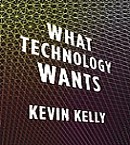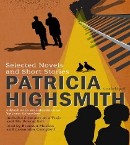January 2011
AUDIO BOOK REVIEWS
by Jonathan Lowe
 Kevin Kelly,
a former editor of the Whole Earth Catalog (and cofounder
of Wired magazine), worked among the counterculture hippies
of the 70s, many of whom have since moved into green industry
startups. Now he has written WHAT TECHNOLOGY WANTS, narrated
by Paul Boehmer on audio. The book examines the dangers inherent
in accepting technologies too quickly, regardless of their
effects on the environment, on society, and on individual
freedoms. He shows that from the crossbow on, big inventions
evolve to change civilization itself, and there is rarely
a way to stop this from happening. Inventors rarely imagine
what their inventions may eventually become. Edison, for example,
thought that the phonograph would be used mainly to record
the dying wishes of gravely ill people. "No technology
is neutral," Kelly says, "and each good technology
can also be abused." Therefore, he concludes, we should
be cautious with new innovations. We should adopt them slowly,
(instead of rushing to have the latest of everything), and
much like the Amish, who linger 50 years behind currently
accepted technologies. Kelly talks to several "Amish
geeks," who do indeed adopt technology, but only after
their use is proven not to harm others. Even Ted Kaczynski,
the Unabomber, (who was considered a nut because he lived
in a shed in Montana and constructed bombs that had little
effect on stopping what he perceived as the dangers of "the
industrial machine"), wrote one argument that made sense,
says Kelly. (His mistake, of course, was that he "followed
logic divorced from ethics.") The industrial machine
that Kaczynski feared, laid out in his manifesto, correctly
stated that the "secondary effects" of new technologies
cannot be predicted, and run on rules that inevitably reduce
individual freedoms. "It can't be reversed, either,"
says Kelly, and so there is the possibility that long term
consequences may unbalance our chance at ultimate survival
as a species. As we come to depend on new technologies, over
time they come to master us. Or as Star Wars director George
Lucas told Kelly, "our technology is going straight up
like a rocket ship, but our social development is a flat line."
So what we need to do is change ourselves before the consequences
which Lucas envisions overwhelm our ability to cope, or even
to survive the outcome. Prescient and challenging, and perfect
companion to the movie TRON, the book points to the far reaching
horizon where intelligence comes in many sentient forms beyond
our egocentric one. What technology wants is to increase the
connections between discovered facts, and exponentially grow
to fill a universe we have yet to imagine. Kevin Kelly,
a former editor of the Whole Earth Catalog (and cofounder
of Wired magazine), worked among the counterculture hippies
of the 70s, many of whom have since moved into green industry
startups. Now he has written WHAT TECHNOLOGY WANTS, narrated
by Paul Boehmer on audio. The book examines the dangers inherent
in accepting technologies too quickly, regardless of their
effects on the environment, on society, and on individual
freedoms. He shows that from the crossbow on, big inventions
evolve to change civilization itself, and there is rarely
a way to stop this from happening. Inventors rarely imagine
what their inventions may eventually become. Edison, for example,
thought that the phonograph would be used mainly to record
the dying wishes of gravely ill people. "No technology
is neutral," Kelly says, "and each good technology
can also be abused." Therefore, he concludes, we should
be cautious with new innovations. We should adopt them slowly,
(instead of rushing to have the latest of everything), and
much like the Amish, who linger 50 years behind currently
accepted technologies. Kelly talks to several "Amish
geeks," who do indeed adopt technology, but only after
their use is proven not to harm others. Even Ted Kaczynski,
the Unabomber, (who was considered a nut because he lived
in a shed in Montana and constructed bombs that had little
effect on stopping what he perceived as the dangers of "the
industrial machine"), wrote one argument that made sense,
says Kelly. (His mistake, of course, was that he "followed
logic divorced from ethics.") The industrial machine
that Kaczynski feared, laid out in his manifesto, correctly
stated that the "secondary effects" of new technologies
cannot be predicted, and run on rules that inevitably reduce
individual freedoms. "It can't be reversed, either,"
says Kelly, and so there is the possibility that long term
consequences may unbalance our chance at ultimate survival
as a species. As we come to depend on new technologies, over
time they come to master us. Or as Star Wars director George
Lucas told Kelly, "our technology is going straight up
like a rocket ship, but our social development is a flat line."
So what we need to do is change ourselves before the consequences
which Lucas envisions overwhelm our ability to cope, or even
to survive the outcome. Prescient and challenging, and perfect
companion to the movie TRON, the book points to the far reaching
horizon where intelligence comes in many sentient forms beyond
our egocentric one. What technology wants is to increase the
connections between discovered facts, and exponentially grow
to fill a universe we have yet to imagine. |
 SELECTED NOVELS & SHORT STORIES OF PATRICIA HIGHSMITH
is narrated by Cassandra Campbell and Bronson Pinchot for
Blackstone, and includes "Strangers On a Train,"
and "The Price of Salt," plus various shorter stories.
A bit of an enigma, Patricia Highsmith (1921-1995) also authored
"The Talented Mr. Ripley," and was unafraid to disconcert
her readers with plotting that was antithetical to the typical
"good over evil" denouement demanded by readers
of pop fiction and viewers of Hollywood features. With prose
that was simple yet complex in emotional undercurrency, she
was a master of unexpected endings, showing how human weaknesses
often set people on paths from which their later decisions
cannot extricate them. Some of her stories were published
in magazines such as Ellery Queen's and Alfred Hitchcock's
Mystery Magazines. "Strangers on a Train" was a
film noir, as was "The Talented Mr. Ripley" with
Matt Da mon and Jude Law in the leads. The definitive narration
of "Train" (the novel) is by William Roberts, but
Bronson Pinchot is also superb here, and nowhere can you get
so much in one audiobook, which also enlists the talents of
actress and voice-over artist Cassandra Campbell. A must for
anyone who loves classic and offbeat mystery.
SELECTED NOVELS & SHORT STORIES OF PATRICIA HIGHSMITH
is narrated by Cassandra Campbell and Bronson Pinchot for
Blackstone, and includes "Strangers On a Train,"
and "The Price of Salt," plus various shorter stories.
A bit of an enigma, Patricia Highsmith (1921-1995) also authored
"The Talented Mr. Ripley," and was unafraid to disconcert
her readers with plotting that was antithetical to the typical
"good over evil" denouement demanded by readers
of pop fiction and viewers of Hollywood features. With prose
that was simple yet complex in emotional undercurrency, she
was a master of unexpected endings, showing how human weaknesses
often set people on paths from which their later decisions
cannot extricate them. Some of her stories were published
in magazines such as Ellery Queen's and Alfred Hitchcock's
Mystery Magazines. "Strangers on a Train" was a
film noir, as was "The Talented Mr. Ripley" with
Matt Da mon and Jude Law in the leads. The definitive narration
of "Train" (the novel) is by William Roberts, but
Bronson Pinchot is also superb here, and nowhere can you get
so much in one audiobook, which also enlists the talents of
actress and voice-over artist Cassandra Campbell. A must for
anyone who loves classic and offbeat mystery. |
 Next, Heather Henderson reads UFOS by Leslie Kean, a painstaking
investigation of unidentified aerial phenomena. Skeptical
in her tone, the author is nonetheless fascinated by the visual
evidence and testimonies of civilians and officials alike
(including generals and a governor). Fighting upstream past
criticism resulting from a flood of B-movies, nut-job conspiracy
theorists, and rigid resistance by military spokesmen, Kean,
an investigative journalist, takes a scientific view of the
subject, and so elevates it into the realm of worthy inquiry.
She lays out what needs to be done to make evidence more open
to public scrutiny, and establishes proof that UFO sightings
have increased at times of nuclear bomb tests, and that they
have intelligently evaded attacks while never returning fire.
Many of the incidents here rigorously examined will surprise
the listener, and have him or her wondering if--or when--an
indisputable alien artifact will one day surface.
Next, Heather Henderson reads UFOS by Leslie Kean, a painstaking
investigation of unidentified aerial phenomena. Skeptical
in her tone, the author is nonetheless fascinated by the visual
evidence and testimonies of civilians and officials alike
(including generals and a governor). Fighting upstream past
criticism resulting from a flood of B-movies, nut-job conspiracy
theorists, and rigid resistance by military spokesmen, Kean,
an investigative journalist, takes a scientific view of the
subject, and so elevates it into the realm of worthy inquiry.
She lays out what needs to be done to make evidence more open
to public scrutiny, and establishes proof that UFO sightings
have increased at times of nuclear bomb tests, and that they
have intelligently evaded attacks while never returning fire.
Many of the incidents here rigorously examined will surprise
the listener, and have him or her wondering if--or when--an
indisputable alien artifact will one day surface.
|

Finally, Laura Hillenbrand once told me she may never write
another book after Seabiscuit, for health reasons, so we are
lucky to have UNBROKEN, the inspirational story of Louie Zamperini,
a celebrated Olympic runner turned soldier who later survived
a harrowing plane crash in the Pacific during WWII, along
with some of the most horrendous indignities at the hands
of Japanese guards ever chronicled. Edward Herrmann is superb
as narrator, once again scoring the kind of dramatic, multi-faceted
dialogue, description and exposition he hopes to perform.
|
|